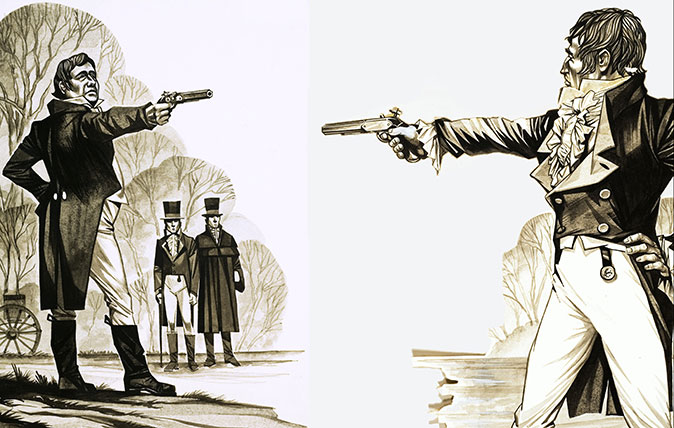Photo AI
Last Updated Sep 26, 2025
Legacy and Memory Simplified Revision Notes for Junior Cycle English
Revision notes with simplified explanations to understand Legacy and Memory quickly and effectively.
393+ students studying
Legacy and Memory
Legacy and memory are central themes in Hamilton. The characters are acutely aware of how they will be remembered, and much of the musical revolves around leaving a lasting impact on history.
- Alexander Hamilton's drive to establish a legacy is a defining aspect of his character:
- "I'm not throwing away my shot!"
- This quote captures Hamilton's determination to seize every opportunity and secure his place in history. His ambition is fuelled by the desire to leave a legacy that will endure beyond his lifetime. His understanding drives Hamilton's relentless pursuit of success and influences his actions and decisions to shape how he is remembered.
- Eliza's role in preserving Hamilton's legacy highlights the power of memory: 3. "I put myself back in the narrative." 4. After Hamilton's death, Eliza dedicates herself to telling his story, ensuring his contributions are not forgotten. Her decision to "put herself back in the narrative" underscores the idea that a person's legacy is shaped by those who survive them. Eliza's actions emphasize the importance of memory and its role in defining a person's impact on history.
-
George Washington's guidance to Hamilton reflects the awareness of historical legacy: 5. "History has its eyes on you." 6. Washington's words remind Hamilton that future generations will scrutinise their actions during the Revolutionary War and the nation's founding. This quote encapsulates the theme of legacy, as it highlights the characters' responsibility to consider how they will be remembered by posterity.
-
Aaron Burr's reflections after the duel with Hamilton reveal his regret and the burden of his own legacy:
- "The world was wide enough for both Hamilton and me."
- After killing Hamilton, Burr is left to grapple with the consequences of his actions. This line reflects his realization that his legacy will be defined by this tragic moment, overshadowing his own ambitions and achievements. Burr's regret illustrates the heavy burden that comes with being remembered for one's worst actions rather than one's accomplishments.

- The musical's final number, "Who Lives, Who Dies, Who Tells Your Story," encapsulates the theme of legacy and memory: 7. "You have no control: Who lives, who dies, who tells your story." 8. This quote emphasizes that while individuals may strive to shape their legacy, they ultimately have no control over how they are remembered. The song reflects on the idea that history is written by those who survive, and their memories and interpretations determine the legacy of those who have passed. The theme of legacy and memory is deeply intertwined with the idea that the stories we tell shape our understanding of the past and influence how we view the figures of history.
500K+ Students Use These Powerful Tools to Master Legacy and Memory For their Junior Cycle Exams.
Enhance your understanding with flashcards, quizzes, and exams—designed to help you grasp key concepts, reinforce learning, and master any topic with confidence!
588 flashcards
Flashcards on Legacy and Memory
Revise key concepts with interactive flashcards.
Try English Flashcards30 quizzes
Quizzes on Legacy and Memory
Test your knowledge with fun and engaging quizzes.
Try English Quizzes29 questions
Exam questions on Legacy and Memory
Boost your confidence with real exam questions.
Try English Questions27 exams created
Exam Builder on Legacy and Memory
Create custom exams across topics for better practice!
Try English exam builder36 papers
Past Papers on Legacy and Memory
Practice past papers to reinforce exam experience.
Try English Past PapersOther Revision Notes related to Legacy and Memory you should explore
Discover More Revision Notes Related to Legacy and Memory to Deepen Your Understanding and Improve Your Mastery
